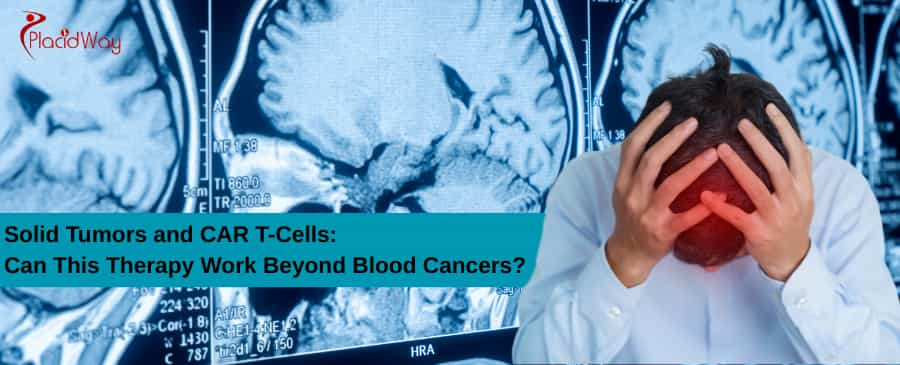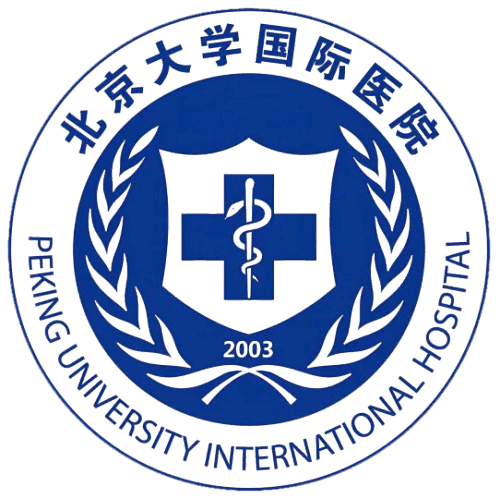
Chimeric Antigen Receptor (CAR) T-cell therapy has revolutionized the treatment landscape for hematological malignancies, offering hope to patients with conditions like leukemia and lymphoma. However, the application of CAR T-cell therapy in solid tumors, such as brain tumors, sarcomas, and pancreatic cancer, presents unique challenges and opportunities. In China, significant strides are being made to extend this innovative therapy beyond blood cancers.
Key Insights at a Glance:
- CAR T-cell therapy shows promise in treating solid tumors like brain tumors, sarcomas, and pancreatic cancer.
- Challenges include tumor heterogeneity and the immunosuppressive tumor microenvironment.
- Chinese researchers are developing strategies to enhance CAR T-cell efficacy against solid tumors.
- Clinical trials in China are actively assessing CAR T-cell therapy for various solid tumors.
- Future advancements aim to improve CAR T-cell infiltration and persistence in solid tumors.
Understanding CAR T-Cell Therapy
CAR T-cell therapy involves genetically modifying a patient's T-cells to express chimeric antigen receptors that recognize and attack specific cancer cells. This approach has been highly effective in treating certain blood cancers, leading to complete remission in some cases.
CAR T-Cell Therapy in Solid Tumors
Expanding CAR T-cell therapy to solid tumors involves addressing several complexities:
Brain Tumors
Primary brain tumors, such as glioblastomas, are aggressive and challenging to treat. CAR T-cell therapy targeting antigens like EGFRvIII and IL13R?2 has shown potential in preclinical studies. However, clinical efficacy has been limited due to tumor heterogeneity and the brain's unique microenvironment. Innovative strategies, including combining CAR T-cells with other therapies, are under investigation to enhance effectiveness.
Sarcomas
Sarcomas, originating from connective tissues, present diverse antigenic profiles, making targeted therapy challenging. Researchers are exploring CAR T-cells directed against antigens such as HER2 and GD2. Early-phase clinical trials have demonstrated safety, but achieving sustained responses requires overcoming tumor-induced immunosuppression.
Pancreatic Cancer
Pancreatic cancer is notoriously resistant to conventional therapies. CAR T-cells targeting mesothelin, a protein overexpressed in pancreatic tumors, are under investigation. While preclinical models have shown promise, clinical translation has been hindered by the dense stromal environment and immunosuppressive factors within pancreatic tumors.
Challenges in Treating Solid Tumors with CAR T-Cell Therapy
Several obstacles impede the success of CAR T-cell therapy in solid tumors:
- Tumor Heterogeneity: Solid tumors often exhibit diverse cell populations, making it difficult for CAR T-cells to target all malignant cells effectively.
- Immunosuppressive Microenvironment: Solid tumors can create a local environment that suppresses immune responses, hindering CAR T-cell activity.
- Physical Barriers: Dense extracellular matrices in solid tumors can prevent CAR T-cells from infiltrating and reaching cancer cells.
- Antigen Escape: Tumors may downregulate or lose the targeted antigen, rendering CAR T-cells ineffective.
Future Advancements Making This Possible
To overcome these challenges, researchers are developing innovative strategies:
- Armored CAR T-Cells: Engineering CAR T-cells to secrete pro-inflammatory cytokines can enhance their function within the immunosuppressive tumor microenvironment.?
- Dual-Targeting CARs: Designing CAR T-cells that recognize multiple tumor antigens can reduce the likelihood of antigen escape and improve targeting specificity.?
- Combination Therapies: Integrating CAR T-cell therapy with checkpoint inhibitors, chemotherapy, or radiation may enhance overall treatment efficacy.?
- Improved CAR Constructs: Advancements in CAR design, such as incorporating costimulatory domains, can enhance T-cell activation and persistence.?
Cost Comparison of CAR T-Cell Therapy in China
China has emerged as a leader in CAR T-cell therapy, offering treatments at more accessible price points compared to Western countries. Below is a cost comparison table highlighting CAR T-cell therapy expenses in China versus the United States:
| Component | Estimated Cost in China (USD) | Estimated Cost in the USA (USD) |
|---|---|---|
| Initial Consultation | $500 - $1,000 | $1,500 - $3,000 |
| Diagnostic Tests | $2,000 - $5,000 | $5,000 - $10,000 |
| T-cell Collection | $5,000 - $10,000 | $15,000 - $30,000 |
| T-cell Modification | $20,000 - $55,000 | $150,000 - $200,000 |
| Infusion Procedure | $5,000 - $10,000 | $20,000 - $40,000 |
| Hospitalization (2-4 weeks) | $5,000 - $15,000 | $50,000 - $100,000 |
| Post-Treatment Monitoring | $2,500 - $5,000 | $10,000 - $20,000 |
| Total Estimated Cost | $50,000 - $150,000 | $300,000 - $500,000 |
Note: Costs can vary based on individual treatment plans and healthcare facilities.
Patient Experiences with CAR T-Cell Therapy
Patient testimonials provide valuable insights into the real-world impact of CAR T-cell therapy for solid tumors in China. Here are some experiences from patients who have undergone this innovative treatment:
Patient Testimonials
Li Wei, 52 – Glioblastoma Survivor
"After being diagnosed with glioblastoma, I was given limited options. When I joined a CAR T-cell therapy trial in Beijing, I didn't expect such positive results. My tumor shrank significantly, and I regained my strength. While it’s not a cure yet, it has given me more time with my family."
Chen Xiu, 45 – Sarcoma Patient
"Sarcoma treatments were not working for me until I tried CAR T-cell therapy. The process was challenging, but I noticed improvements within a few months. My doctor told me my tumors had reduced in size, and my pain levels had dropped. I hope more people can access this treatment soon."
Zhang Ming, 60 – Pancreatic Cancer Fighter
"CAR T-cell therapy was my last hope after multiple failed treatments. The journey was tough, and I experienced side effects, but my tumor response has been promising. My doctor in Shanghai is hopeful about my progress. This treatment has given me renewed hope."
Benefits of CAR T-Cell Therapy for Solid Tumors
Despite challenges, CAR T-cell therapy offers several benefits for solid tumor patients:
- Personalized Treatment: CAR T-cells are tailored to each patient’s cancer type, improving specificity.
- Potential for Long-Term Remission: Some patients experience prolonged tumor shrinkage and disease control.
- Fewer Side Effects than Traditional Chemotherapy: Unlike chemotherapy, which affects healthy cells, CAR T-cells target cancer more precisely.
- Innovative Approach for Resistant Cancers: It provides an option for patients who have exhausted conventional treatments.
- Ongoing Advancements: Research in China is rapidly improving CAR T-cell therapy, making it more effective for solid tumors.
FAQs About CAR T-Cell Therapy for Solid Tumors
How does CAR T-cell therapy work for solid tumors?
CAR T-cells are engineered to recognize and attack cancer cells by binding to tumor-specific antigens. Unlike in blood cancers, solid tumors create physical and biological barriers, making treatment more complex. Researchers are developing strategies to overcome these obstacles.
What are the major challenges in using CAR T-cell therapy for solid tumors?
The main challenges include tumor heterogeneity, the tumor microenvironment suppressing immune responses, physical barriers preventing T-cell infiltration, and the possibility of tumors losing the targeted antigen over time.
Is CAR T-cell therapy for solid tumors available in China?
Yes, China is conducting multiple clinical trials and offering CAR T-cell therapy at specialized cancer centers. While it is still considered an emerging treatment for solid tumors, many hospitals are leading research and patient care efforts.
How much does CAR T-cell therapy cost in China compared to the US?
CAR T-cell therapy in China costs between $50,000 - $150,000, whereas in the United States, it ranges from $300,000 - $500,000. Lower costs in China are due to government support, local manufacturing, and streamlined regulations.
What are the side effects of CAR T-cell therapy for solid tumors?
Potential side effects include cytokine release syndrome (CRS), neurological toxicity, fatigue, fever, and low blood pressure. However, researchers are improving treatment protocols to manage these effects better.
How successful is CAR T-cell therapy for solid tumors?
Success rates vary by cancer type. While solid tumors present more challenges than blood cancers, early clinical trials show encouraging results, particularly in glioblastomas, sarcomas, and pancreatic cancers.
Can international patients access CAR T-cell therapy in China?
Yes, many medical centers in China accept international patients for CAR T-cell therapy. It is recommended to consult with a medical provider in China to assess eligibility and arrange travel and treatment plans.
Why Choose PlacidWay for CAR-T Therapy in China?
- Trusted Global Medical Tourism Platform – PlacidWay connects international patients with top-quality healthcare providers in China.
- Personalized Guidance – Dedicated patient coordinators help you navigate the entire treatment process.
- Cost Transparency – Get clear information on treatment pricing without hidden fees.
- Accredited Medical Facilities – Partnering with well-established institutions that specialize in CAR-T therapy.
- Multi-Language Assistance – Overcoming language barriers with professional translation and interpretation services.
- Efficient Treatment Coordination – Faster appointment scheduling and streamlined communication with specialists.
- Post-Treatment Follow-Up – Continued support and medical consultation after returning home.
Take the Next Step in CAR T-Cell Therapy
China is pioneering CAR T-cell therapy advancements for solid tumors, offering hope to patients worldwide. With ongoing research, affordable treatment options, and promising clinical trial results, this revolutionary therapy may soon become a standard option for solid tumors.If you or a loved one is considering CAR T-cell therapy for solid tumors, now is the time to explore available options. Consult with a specialist today to learn more about treatment possibilities in China.


.png)


Share this listing